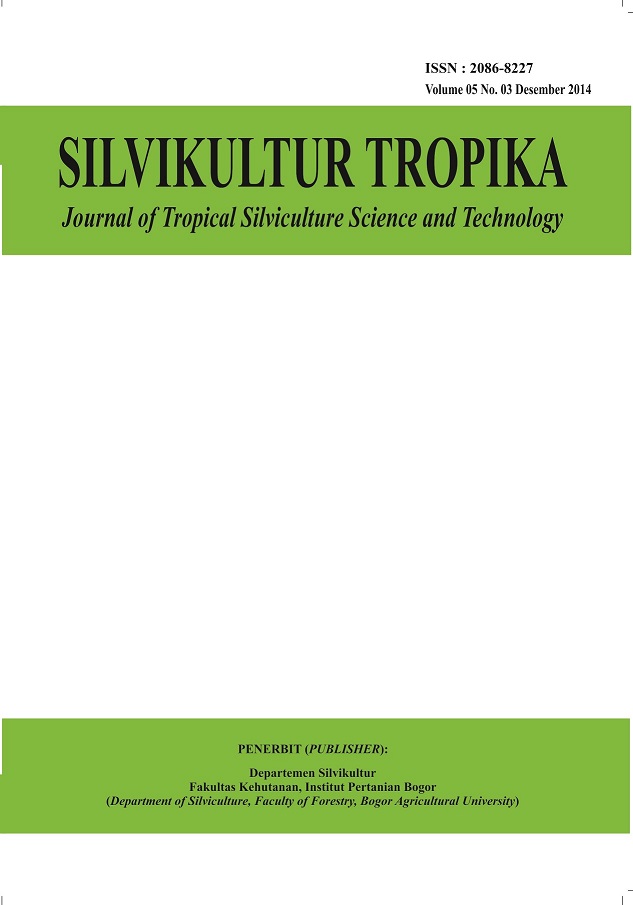Selection of Plants Species Adaptation in Petroleum Contaminated Soil Seleksi Adaptasi Jenis Tanaman pada Tanah Tercemar Minyak Bumi
Abstract
The soil contaminated by Petroleum from oil operation contents Total Petroleum Hydrocarbon (TPH). Phytoremediation is the use of plant potential to reduce the level of TPH in the soil. We should select the appropriate plants species before starting phytoremediation activity. The aims of this study was to select the adaptability of the fourth plants species (Sorghum bicolor, Pueraria javanica, Tagetes erecta and Paspalum conjugatum); characterize their growth performance at the contaminated soil and investigate the most adaptive plant for phytoremediation activity. They were grown in the petroleum contaminated soil with the concentrations of TPH 1.41%, 4.69%, 8.15% and the control was 0.43%. The parameters measured were the plant length, the number of leaf, leaf color, root length, root performance and total dry weight. The result shown, fourth plants species adaptived in all TPH concentration. However, the growth decreased in the soil with the TPH concentration 8.15%.
Keywords: adaptation test, petroleum, plant performance, total petroleum hydrocarbon










